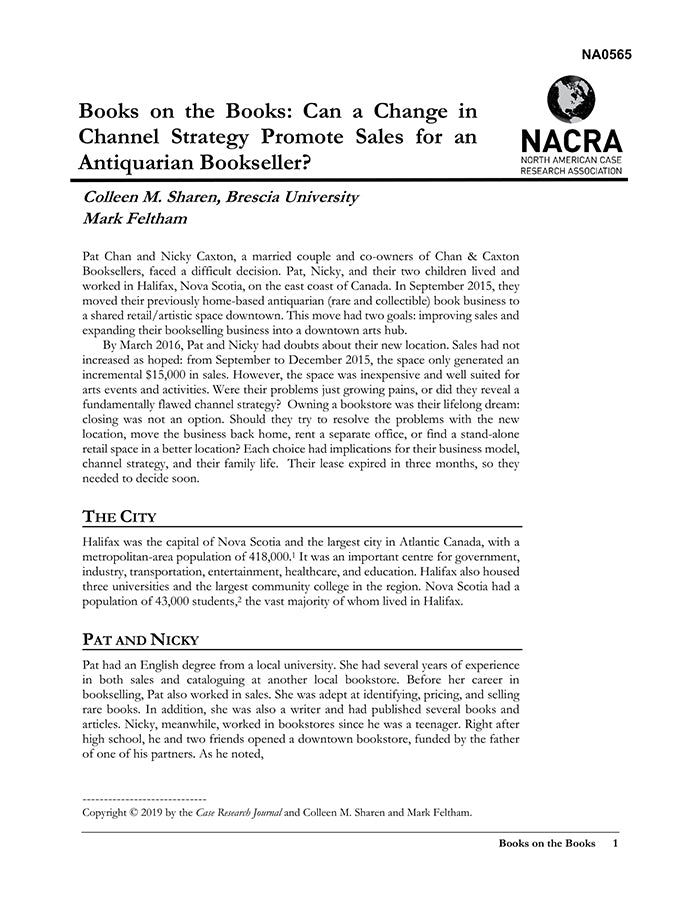Books on the Books: Can a Change in Channel Strategy Promote Sales for an Antiquarian Bookseller?
受取状況を読み込めませんでした
Pat Chan and Nicky Caxton, a married couple and co-owners of Chan & Caxton Booksellers, faced a difficult decision. Seven months before, they had changed their channel strategy, moving from their home-based business to a shared retail space to increase revenue and decrease lower-margin consignment sales. This new strategy was not generating the expected increase in sales; however, the space offered them both low cost and flexibility to deliver special events for their customers. Were these problems merely growing pains, or were they evidence that the bricks-and-mortar retail channel wasn't working out? Pat and Nicky thus found themselves pondering several options: staying in their current location, moving their business back to their apartment, renting an office space, or finding a stand-alone retail space in a better location. Each option had different potential implications for their business model, channel strategy, and their family life. This case is appropriate for upper-year undergraduate and graduate business courses or workshops in small business, small-business development, entrepreneurship, or family business. It explores the ongoing issues of managing and adjusting when a strategy fails in a context of small business and constrained resources. We use the business model canvas (Osterwalder & Pigneur, 2010) and the Diamond-E framework (Crossan, Rouse, Rowe, & Maurer, 2016)to illustrate the interrelationship between the industry environment, management preferences, and business model alternatives. As such, the case explores the role of management preference in a small family business.
【書誌情報】
ページ数:14ページ
サイズ:A4
商品番号:HBSP-NA0565
発行日:2019/1/1
登録日:2019/7/4


